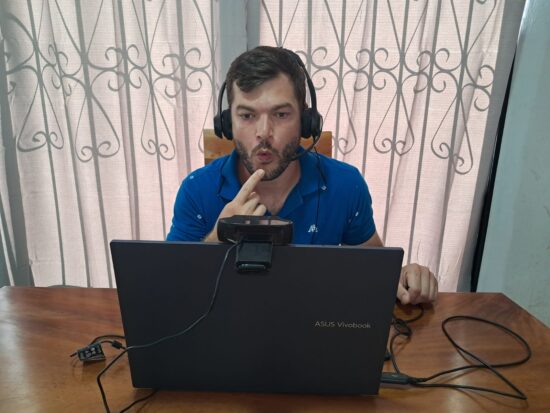
Virtual Educator FAQs
In addition to browsing the frequently asked questions answered in this section, applicants can contact virtualeducator@elprograms.org with questions at any time.
- Eligibility
- Application
- Application References
- Review and Selection Process
- Accepting a Virtual Educator Project
- Pre-Project Orientation
- Payments, Benefits, and Allowances
- On Assignment
- Alumni and Return-to-Program Policy
- Current Participants
No. Applicants to the Virtual Educator Program must be U.S. citizens. English Language Programs is a U.S. Department of State funded cultural exchange program designed to improve English teaching capacity around the world and contribute to mutual understanding between the people of the United States and people abroad.
Yes. Applicants with dual citizenship can apply to the Virtual Educator Program as long as the United States is one of their countries of citizenship.
A conferred graduate level degree or higher is required to apply for the Virtual Educator Program. To meet the minimum eligibility requirements, your qualifying graduate level degree would ideally be in TESOL or a field related to English language teaching. However, if your graduate level degree is in a field unrelated to TESOL, you are eligible to apply if you also have one of the following credentials:
- A recognized TESOL certificate with at least 120 course hours plus a supervised and observed practicum (additional information regarding certificates can be found in the Eligibility section of the Virtual Educator Application Process page). Or,
- A current, valid, and full state teacher credential, certification, or license with a specialization or an endorsement in ESL or the equivalent.
No. Your qualifying degree must be conferred by the time you submit your application.
Online teaching experience is preferred, but not required. You are encouraged to include any skills and experiences that might demonstrate your technological capabilities in your application.
The program does not provide any foreign language training or financial subsidies to offset the cost of language training. Language skills beyond English are not required to apply to the program, but they can be helpful. You should list any languages spoken, and to what degree, in your application.
Language skills beyond English are not required to apply to the program. While speaking another language can be beneficial in certain regions, it does not increase your chances of placement in a certain country due to knowing the local language. You should list any languages spoken and level of proficiency, in your application.
Competitive Virtual Educator applications provide evidence of qualities such as flexibility, cultural adaptability, resourcefulness, and the desire to engage in cultural exchange within the virtual environment. Serving as a Virtual Educator involves demanding work, often in challenging situations with unfamiliar classroom practices or teaching methodologies. Virtual Educators are successful when they can adjust to a different culture and cultivate classroom interaction and engagement.
Former English Language Programs participants who owe funds to English Language Programs are not eligible for consideration to participate in new English Language Programs projects for which they are qualified until the entirety of the owed funds are repaid.
No. The mission of English Language Programs is to offer cultural exchange opportunities to as many educators as possible, and to welcome as many new participants to the program as possible every year.
No. Virtual English Language Educators cannot participate in other Department of State programs at the same time. View the complete list of Department of State exchange programs on the Bureau of Educational and Cultural Affairs Alphabetical List of Programs site.
Yes. If you have had a Virtual Educator project in one cycle, you can reapply in the immediately following academic cycle. You must submit a new application in the new cycle.
A person is accepted into the candidate pool for a single academic cycle, and can be considered for projects throughout. Project dates in any cycle may start as early as August 1 and conclude no later than December 31 of the following year.
A candidate can have multiple Virtual Educator projects in a single academic cycle but cannot have more than one project at a time.
Once the application opens each year, applications are reviewed on a rolling basis until all projects are filled for the relevant academic year. The application closes during the winter for updates.
A detailed application timeline for the current academic year can be found on the When to Submit an Application tab of the Application Process page.
You are encouraged to submit your application before August in a given academic cycle to have the best chance of being considered for all available projects.
If you are an applicant that has not been selected to another English Language Programs project in the past, you can apply to more than one program at the same time, but you are encouraged to apply only to the program(s) for which you are qualified.
If you decide that applying to more than one program is appropriate, simply follow the links to each individual application in the English Language Programs Portal to complete the required information.
Refer to the eligibility overview of the program in which you are interested in applying to determine your eligibility.
You can indicate regional and/or project preferences as well as hours of availability, in the application; however, the program cannot guarantee a match to a project that fits those preferences. Projects are developed by U.S. Embassies to address local needs, and therefore, the location of, requirements and duties for projects will vary. Further, you will only be considered for a project match if there is a professional fit between your qualifications and the needs of the project. While regional preferences and applicant availability are taken into consideration, applicants who are willing to be matched to a project anywhere in the world are much more likely to be matched to a project than those who have specific location preferences.
Yes. Log in to your application on the English Language Programs Portal to review the information you previously entered and resubmit your application for the current cycle when you’re ready. You must submit a new application for each cycle in which you wish to be considered.
While most of the information that is previously submitted in a Virtual Educator application will carry over to the application for the next academic year, you are strongly encouraged to review all sections of the application and make any necessary updates to your information before resubmitting. Updates are made to the application questions each year.
You can also use the same list of references for an application for a new cycle or provide a new list. The system will automatically ask references used for a previous cycle if they want to a) use the same answers with no changes, b) use their old answers and make edits, or c) give completely new answers.
When electronic transcripts are not available, you can scan a paper transcript and upload it to the application as a PDF.
Note that official transcripts are not required; alternatively, you can upload an electronic version of your unofficial transcript, as long as the degree conferred – or awarded – date is listed.
No. A conferred graduate level degree is required to apply, and therefore, only graduate level transcripts must be included with the application. If you have more than one graduate level degree, you should include the transcript(s) from the degree(s) most relevant to the Virtual Educator Program.
Unofficial transcripts are accepted, however, the degree conferred – or awarded – date must be listed.
If you have a Bachelor’s degree in TESOL or a related field, you can include those transcripts, as well.
Yes, for the program to verify a TESOL certificate, you must submit a scan of the certificate document, and a Web address (URL) where the certificate program’s curriculum and practicum components can be verified. Additional information regarding certificates can be found in the Eligibility section of the Virtual Educator Application Process page.
If you are submitting a K-12 license/endorsement, you must ensure that the documentation uploaded is valid until at least August 1 of the following academic cycle.
As soon as you submit the application, an automated email, with a link and instructions on how to submit a short questionnaire, is sent to your references. References do not need to complete the questionnaire in one sitting and may return via the link as many times as needed prior to submitting the questionnaire.
You can return to your application at any time to verify that your references have responded or to send a reminder to your references. Your application is not considered complete and it will not be reviewed until the required references are submitted.
No. Your references must complete the questionnaire sent to them via email by the program. References cannot upload or copy and paste from a previously written letter.
When selecting your references, be sure they can respond to the questionnaire themselves. They should be able to speak to your ability to succeed in the program by providing examples of your work ethic, initiative, leadership skills, resourcefulness, flexibility, judgment, classroom management skills, and overall strengths and weaknesses. Reference responses are confidential.
Contact your references in advance to ensure they are willing and available to provide a reference, and double-check that their email address is current.
While there is no official deadline for references, they should be submitted as soon as possible to ensure there are no delays in the application review. An application cannot be reviewed – and then considered for available projects – until all references are received. The later you enter the pool, the more likely it is that projects will have already been filled.
You can use the same list of references for an application for a new cycle, or provide a new list. The system will automatically ask references used for a previous cycle if they want to a) use the same answers with no changes, b) use their old answers and make edits, or c) give completely new answers.
Once an application is submitted to the program, and the required references are received, it is reviewed for completeness and eligibility, and to identify evidence of the experience and qualities the program looks for in Virtual Educators. Qualified applicants will also be contacted for an interview.
Applicants that meet the program’s requirements are placed into the applicant pool for consideration during the matching phase (for AY 2022-23, this process is beginning in May 2022). Final selection decisions are then made by U.S. Embassies.
You will be notified by email when a determination is made regarding eligibility and whether you will be placed into the applicant pool for matching for the upcoming cycle. Once the review begins, you should allow up to three weeks for it to be conducted. You can also track the status of your application review online, by logging in to the English Language Programs Portal.
Details on each of the phases of the review and selection process (eligibility review, matching, and selection), and the timeline for receiving a response from the program, can be found in the Review, Matching, and Selection section on the Virtual Educator Application Process page.
No. Applications that are moved to the available applicant pool are considered eligible to be matched to a project, but being placed into the available applicant pool does not guarantee that an applicant will be matched to or selected for a project.
Details on each of the phases of the review and selection process (eligibility review, matching, and selection), and the timeline for receiving a response from the program, can be found in the Review, Matching, and Selection section on the Virtual Educator Application Process page.
Those in the available applicant pool are strongly encouraged to update their current availability as often as needed.
If you decide to withdraw your application for consideration for a specific project, or, if you are matched to a project but then not selected by the U.S. Embassy for that project, your application will be placed back into the applicant pool for the current cycle, but there is no guarantee of another match.
If you are not ultimately matched to or selected to a project in the current cycle, you will be notified by email and encouraged to review your materials and consider reapplying the next year. Applications are not automatically reconsidered for future cycles.
No. Offers to participate in a Virtual Educator project cannot be deferred to future cycles. If your availability changes, you will need to withdraw your application from consideration.
You can log in to your application on the English Language Programs Portal to review the information you previously entered and resubmit your application for another cycle, when you are ready. You must submit a new application for each cycle in which you wish to be considered.
Applicants submit an application for a specific academic year cycle; it is possible to be selected for more than one Virtual Educator project during the academic year cycle. To be considered for a project in another academic year, applicants must resubmit their application.
If you are selected for a project by a U.S. Embassy, you will receive an acceptance email from the cooperating agency outlining next steps, including how and when to submit the required onboarding materials, when to contact your U.S. Embassy points of contact in your country of assignment, and when you can expect to receive your Virtual Educator agreement.
Selected Virtual Educators receive a Virtual Educator agreement, not a contract, which will be sent to you in advance of the start date of your project, but only after all onboarding requirements are completed.
You can request contact information for your counterparts at your host institution from your points of contact at the U.S. Embassy in your country(ies) of assignment after receiving your acceptance email.
Yes. The program provides an online pre-project orientation in advance of the project start date. Completing the pre-project orientation is required. You will also be put in touch with the U.S. Embassy in your country(ies) of assignment and your host institution to discuss project-specific preparations.
Your points of contact at the U.S. Embassy in your country(ies) of assignment, who will be listed in your acceptance email, can help with any questions related to your Virtual Educator project duties or the country(ies) of assignment. After you have a fully signed agreement, they will also provide you with contact information for your counterpart at your host institution.
Virtual Educators receive a generous financial benefits package that includes an hourly stipend and a planning supplement.
A complete overview of payments, benefits and allowances can be found in the Benefits section of the Virtual Educator Overview page.
The program also provides numerous professional benefits. Virtual Educators are provided a pre-project orientation, which includes presentations about online teaching and teacher training. Virtual Educators often have opportunities to expand their professional skills, for example by designing and teaching an online methodology course or presenting teaching best practices in a webinar series.
The program also provides numerous professional benefits. As a member of the English Language Programs community, Virtual Educators have access to a network of highly-experienced TESOL professionals among the program’s participant and alumni community. Virtual Educators are members of the English Language Programs online Community of Practice, with access to resources, discussions, job listings, and online webinar events, including the annual Specialist Master Class. Program alumni can also apply for Conference Registration Grants.
VAA is available to supplement and enhance project activities such as attending pre-project orientation events; implementing ad hoc, online cultural activities at the request of the local U.S. Embassy; participating in virtual regional events; and, purchasing materials required for the project, such as subscriptions to video/web conferencing services, specialized software, or computer peripherals necessary to deliver quality online instruction.
VAA is a reimbursable allowance, which means the funds are not provided in advance. Virtual Educators submit expense reports to the cooperating agency to receive reimbursement for approved VAA expenses.
There are very specific policies related to what types of VAA expenses Virtual Educators can incur and how to submit expense reports for reimbursement, which are provided during the pre-project orientation and made available throughout the project for reference.
Payment schedules vary depending on the length of projects, but first payments are made within 30 days of the start of the agreement period.
Yes. All payments from the program that are processed by the cooperating agency will be deposited electronically into a single, United States bank account. The program cannot pay you via wire transfer or check, divide your payments into more than one account, or make payments to foreign bank accounts.
Yes. For taxation purposes, Virtual Educators are considered a supplier or independent contractor. As a Virtual Educator, you will not be employed by the U.S. government or the cooperating agency. As such, you are providing a fee-for-service while on assignment.
As these fees are taxable, certain payments received from the program through the cooperating agency will be reported both to you and to the IRS on Form 1099-NEC. These fees are called “non-employee compensation” and they are considered taxable income. Taxable income and benefits received from the program through the cooperating agency include:
- Stipend for contact hours;
- Pre-project planning supplement; and
- Project planning supplement.
You should consult your tax advisor or the IRS for guidance, as the program cannot provide any tax guidance. Filing and paying your taxes are solely your responsibility.
No. The program does not provide any type of health insurance or health benefits program for Virtual Educators. Virtual Educators are not enrolled in the Accident and Sickness Program for Exchanges (ASPE).
No. The Public Service Loan Forgiveness Program originates at the Department of Education and it stipulates that it covers employment only; because Virtual Educators are not employees, they cannot be considered for the program.
Note: Peace Corps and AmeriCorps were written into the regulation as specific exceptions; the Department of Education noted it would not reopen the regulation or consider new groups as exceptions to the employment requirement. If the regulation changes, the program will notify all participants.
You are not employed by the U.S. government, the cooperating agency, or any agency or government of the country(ies) of assignment. You are instead considered a grantee and, for tax purposes, a supplier or independent contractor. You are bound by the terms and conditions of your Virtual Educator agreement and cannot expect any additional compensation or benefits, except what is detailed and explained within your agreement.
Project lengths vary; they may last several weeks or up to one semester. Some projects may be extended at the request of the U.S. Embassy in the country(ies) of assignment.
Virtual Educator projects occur in almost every global time zone, and as a result, Virtual Educators may work at almost any time in their working day as well as outside working hours (i.e. early morning or late evening). If your availability is limited to certain times of day, you are encouraged to update the Availability section of the application to facilitate making the best matches.
There really is no typical Virtual Educator project. Project duties are developed by U.S. Embassies to meet the needs of the host institution(s) and the current educational context. Sample Virtual Educator duties could include, but are not limited to:
- Teaching 4-skills and methodology classes to undergraduate students training to be English language teachers;
- Organizing and participating in online conferences for local and national teachers’ associations;
- Presenting at American Spaces on U.S. culture and EFL/TEFL topics.
Eligible applicants will receive an actual project description of the assignment they are being considered for during the matching process.
In most cases, yes. However, the performance of any other professional activity which you may be independently contracted to execute must not interfere with or be in conflict with the duties of your Virtual Educator project.
If, however, you will have an overlapping full-time employment contract with or will be employed by another U.S. government agency during the project agreement period, you will be required either to waive the Project Planning Supplement and the Stipend for Contact Hours as specified in your Virtual Educator agreement, or to take an unpaid leave of absence from the other U.S. government agency for the duration of the project agreement period. You will also be asked to provide confirmation, in writing, indicating which of these two options has been agreed upon and, in the case of the unpaid leave of absence, documentation from the other U.S. government agency confirming the leave.
Virtual Educator projects do not include specific leave times
You must ensure you are available to complete the project according to the description and schedule you are provided during the matching process and in the Virtual Educator agreement.
If you won’t be able to continue to perform your project duties, if you need to take a break, or if you need to leave the project before the end date of your agreement – for any reason – you must contact the U.S. Embassy in your country(ies) of assignment and the cooperating agency right away. A decision will be made as to whether the project can continue or if your agreement will be terminated.
Yes, Virtual Educators must submit program reports, as applicable to the project and outlined in each agreement, and expense reports to receive reimbursement for approved reimbursable expenses.
The COP is an invitation-only virtual space for all participants and alumni of the English Language Programs to:
- submit Highlights to share details about unique events or projects you are working on;
- share resources, ideas, best practices, photos, events, and experiences from around the world;
- find teaching and teacher training tools;
- connect with other program participants;
- participate in professional development opportunities provided by the program;
- stay up-to-date on the latest events and resources available on the English Language Programs and American English websites;
- post job announcements and search for job opportunities; and,
- stay connected and contribute to the program as alumni.
No, but understand that U.S. freedom of speech guarantees may not be applicable in your country(ies) of assignment. Privacy settings, even if you enable them, may not work and your posts may be viewable by the authorities or even citizens of your country(ies) of assignment. Be aware of this when you are posting comments on blogs, websites, or other social media platforms. Be aware of any local sensitivities, and consider the reaction of your students, local colleagues, and authorities who may read your posts. Offensive posts could create tension and ultimately result in the termination of your project.
Also, as these will be your personal views and not those of the U.S. Department of State during the time of your project, you are asked to post the following disclaimer on your personal blog or website for added clarity: “This website is not an official U.S. Department of State website. The views and information presented are the Virtual English Language Educator’s own and do not represent the Virtual English Language Educator Program or the U.S. Department of State.”
Virtual Educators may be selected for one or more projects per academic year and in some cases, a certain project may be renewed and you may be asked by the U.S. Embassy to continue a project into the next academic year cycle. All requests for renewals are made by the U.S. Embassy in your country(ies) of assignment and will be evaluated against any new requests for programs or sites, which are based on the priorities and needs of the U.S. Department of State, each cycle.
Yes. The U.S. Embassy in your country(ies) of assignment can direct the cooperating agency to terminate your participation in your project, at any time before or during your project agreement period. Reasons for termination could include, but are not limited to, engaging in offensive, inappropriate, unethical, or illegal acts; violating program, agreement, or host institution policies; failure to communicate with the U.S. Embassy or the cooperating agency; failure to follow instructions or guidance from the U.S. Embassy; or if you are unable to perform your duties for any reason, or you abandon your duties.
You will receive an official termination letter via email from the program. This letter provides the full terms of your termination, the date on which your agreement was terminated, and it will outline details on payments you have received, specifying what funds you can keep, and what funds, if any, you are required to return to the program.
Although it may be possible to do more than one project, the program must afford this exchange opportunity to as many applicants as possible. If a Virtual Educator completes a project, they may reapply in the immediately following academic cycle; the participant may be a Virtual Educator for no more than two consecutive academic cycles.
Alumni are valued members of the English Language Programs community. They continue to have access to the online Community of Practice, including a Jobs section, information about Alumni Conference Grants, invitations to Online Community Events, and access to the annual Specialist Master Class, a professional development opportunity offered exclusively to program participants and alumni.
For policy guidance, current Virtual Educators should review the Terms and Conditions of their Virtual Educator agreement and the applicable handbook for their program, located on the English Language Programs Policy Handbooks page.
Before You Apply
Virtual Educator Program
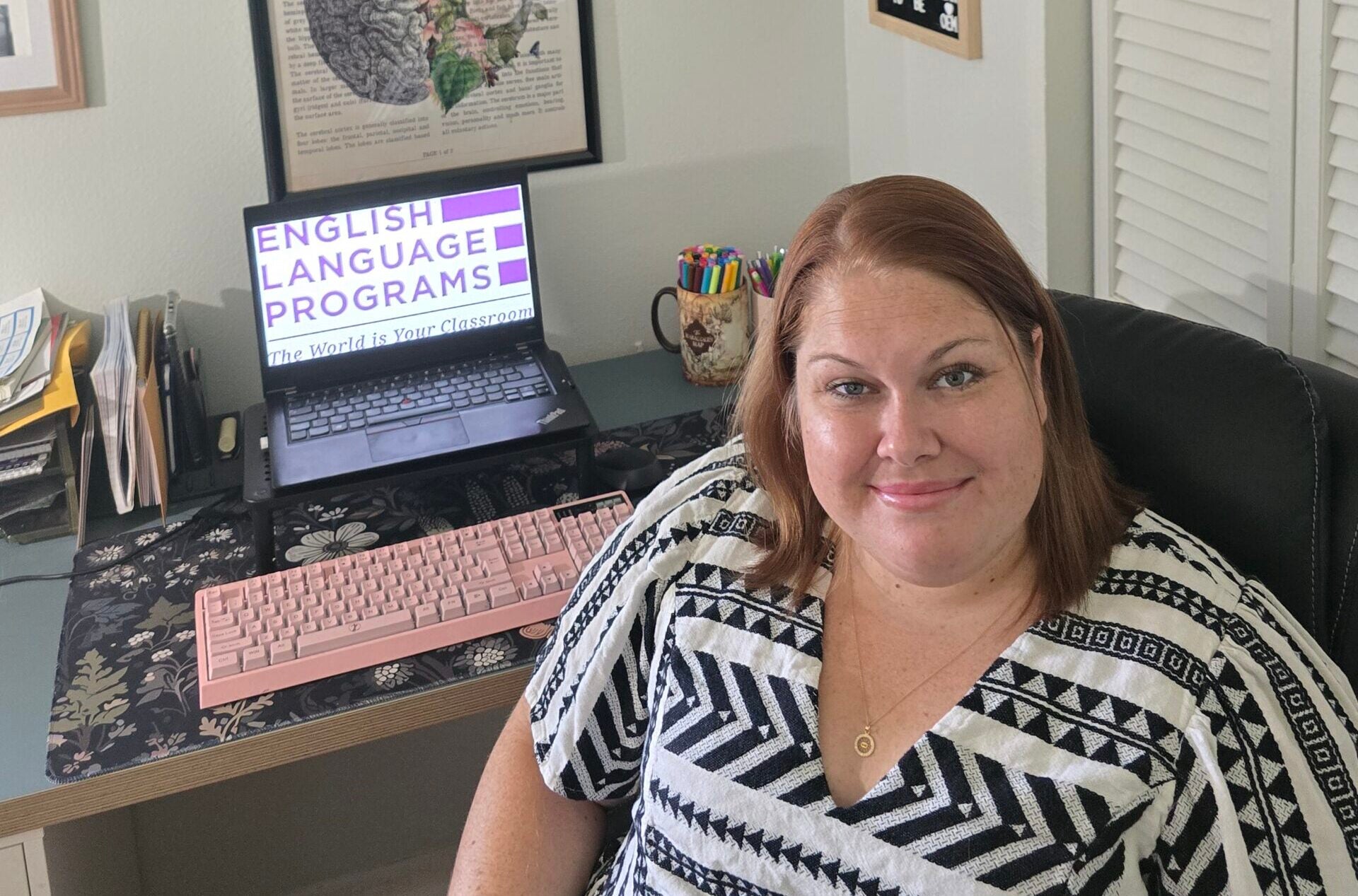
Virtual Educator
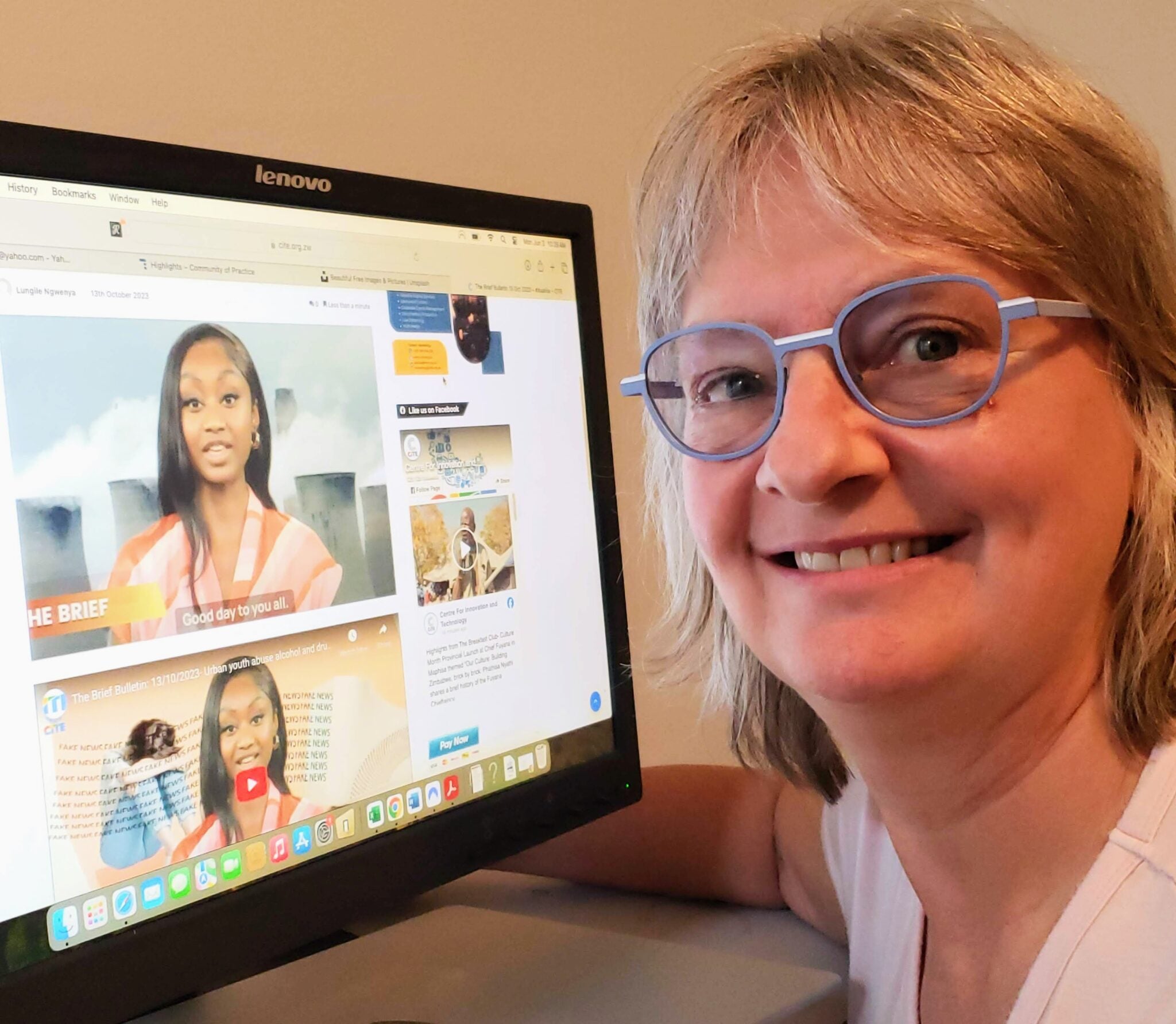
Application Process
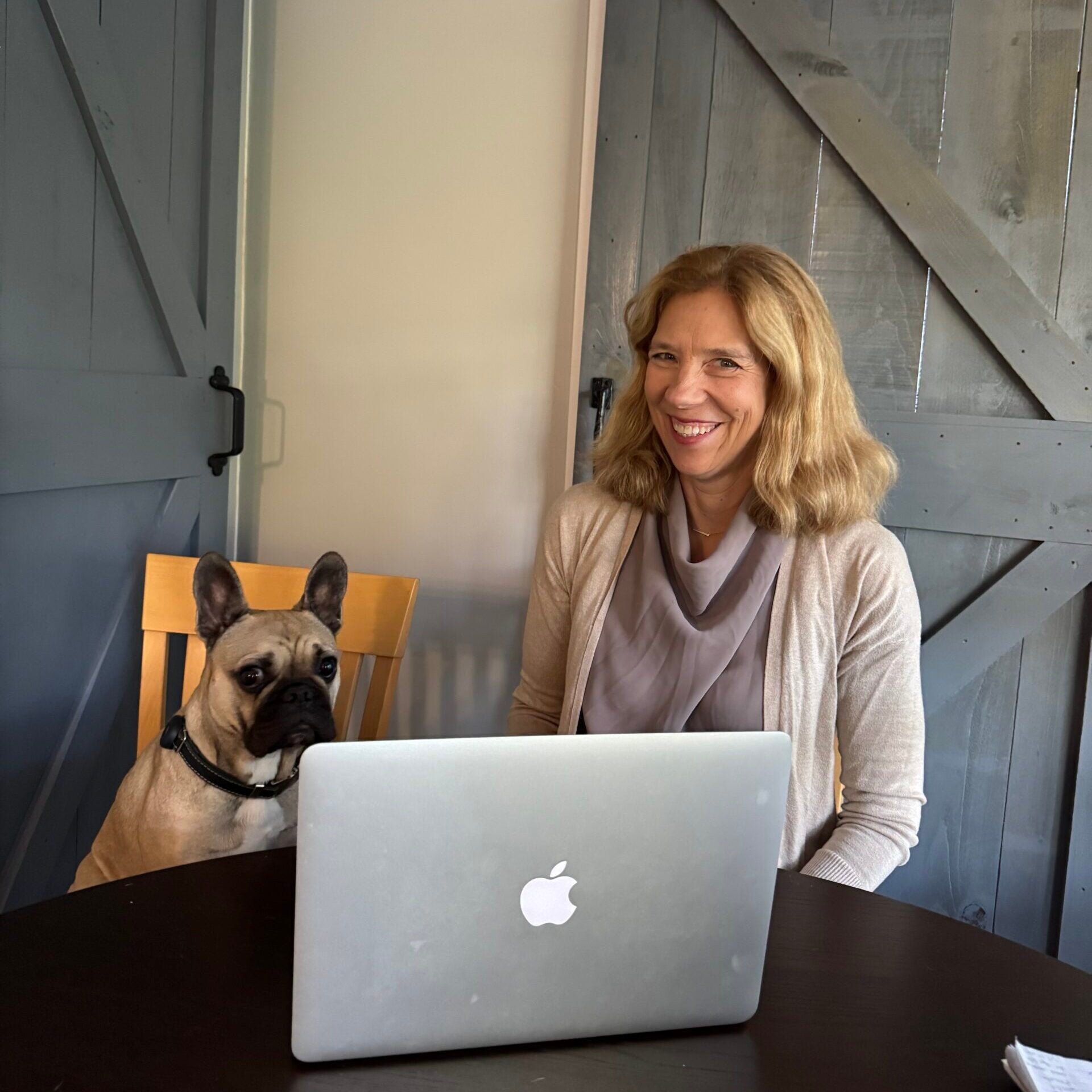
News & Events
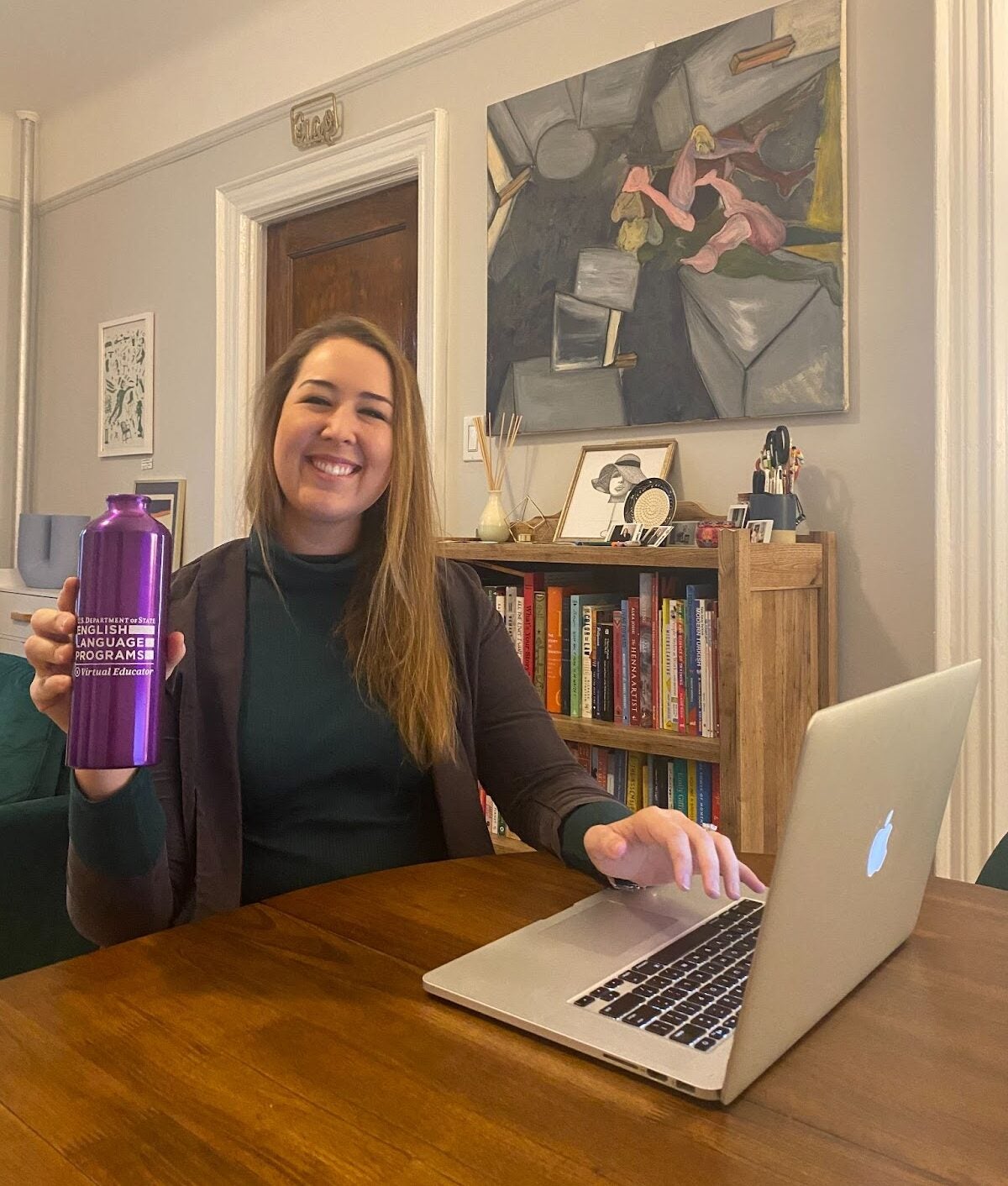
Virtual Educator Program
Ready to Apply?
When you first access the English Language Programs Portal, you'll need to create an account. The system will guide you through the process. If you have questions, please contact us at virtualeducator@elprograms.org.
